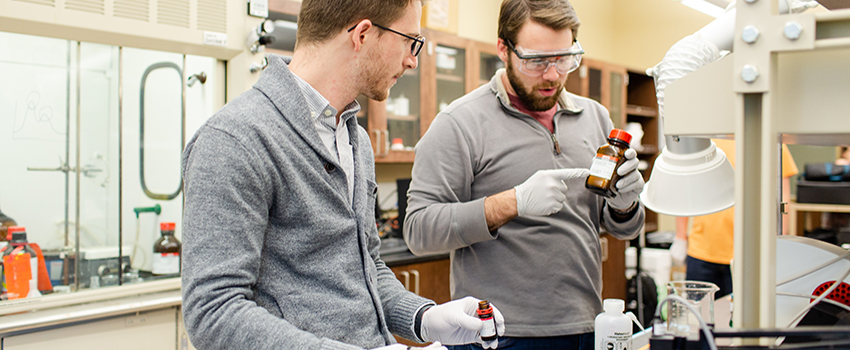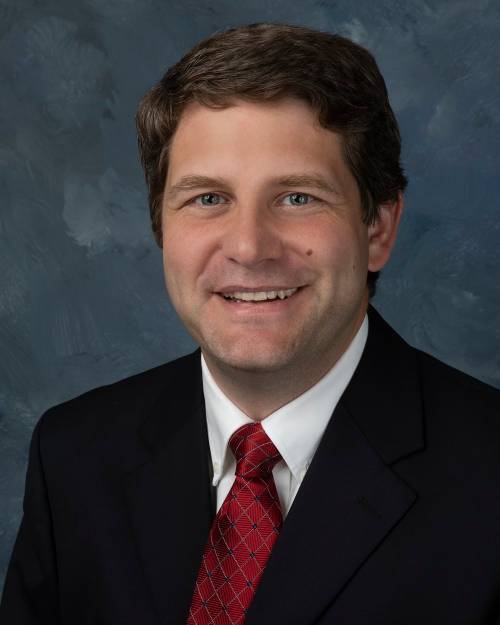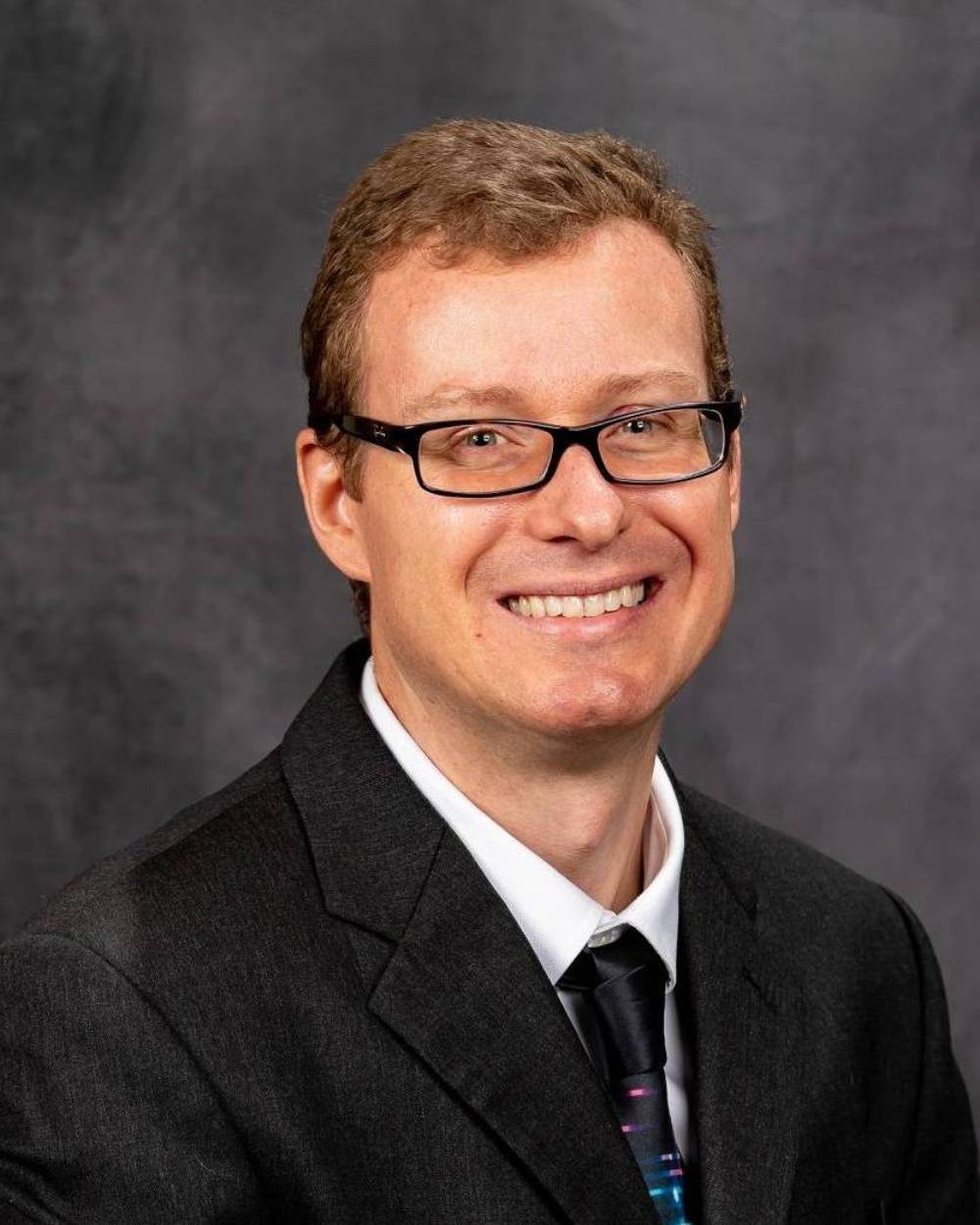Chemical and Biomolecular Engineering Graduate Program

|
|
Ph.D. in Chemical and Biomolecular Engineering
The purpose of the PhD program is to produce graduates who can apply the fundamental principles of thermodynamics, mass transfer, and reaction kinetics to a variety of technical areas, such as drug discovery, industrial chemistry, biological systems, and environmental engineering. Because the program is built upon the application of chemistry, the central science, and is interdisciplinary by design, graduates will find careers in diverse areas such petrochemical, chemical processing, biotechnology, green technologies, pharmaceuticals, and private consulting. However, the program will also qualify graduates for academic appointments as professors, post-graduate researchers, and research scientists in university programs and laboratories.
Academic research that explores new concepts at a significant depth is key to the PhD degree, and the University of South Alabama has a collaborative research environment for students to complete their research with active research in ionic liquids, catalysis, porous materials, metal-organic frameworks, molecular simulations, biomedical applications, nanomaterials, and many others. Students can apply for admissions to the PhD upon receipt of their bachelor’s degree, and the time to complete the degree may vary with many students finishing in about 5 years.
Accelerated Bachelor’s to Master’s (ABM) program
The ABM program allows full-time undergraduate students within two semesters of BSChE graduation at USA, who have a cumulative GPA of 3.0 or better at USA (with at least 30 credit hours taken at USA), to earn their MSChE degree at an accelerated pace. Students registered for the ABM program may use up to six credit hours of graduate course work towards both the BSChE and MSChE degrees. This means that after earning the BSChE degree the course load for the MSChE degree is reduced by six credit hours. More information is available here.
Master of Science degree in Chemical Engineering (MSChE)
A Master’s degree in Chemical Engineering is increasingly required for advanced-level employment opportunities with higher-profile national and international employers. Students who want to separate themselves from the pack in the employment race should seriously consider taking a Master’s degree either through the ABM program (see above) or as a stand-alone qualification. The programs of study provide knowledge of modern engineering concepts and practices, and build upon the knowledge and skills expected of a holder of a typical Bachelor’s degree to the point where a Master’s graduate can make high-level contributions to contemporary engineering designs. A Master’s degree is also an ideal preparation for further study towards the doctoral degree if desired.
Three study plans are available. The thesis and project options require six credit hours for writing a medium-length technical report. The thesis is generally a contribution to original engineering research on a topic of great relevance to current state-of-art in Chemical or Biomolecular Engineering, and the alternative project is usually heavily oriented towards Chemical or Biomolecular Engineering applications. Both these options require a total of 30 credit hours. Finally, the Course option includes no project work but requires 33 credit hours of coursework. More information is available here.
Program Curriculum
Thesis Option: 30 credit hours
| Fall Semester | Spring Semester | Summer Semester | |
|---|---|---|---|
| Year 1: | CHE 520 (3 hours) Grad Elective (3 hours) CHE 501 (1 hour) |
CHE 521 (3 hours) CHE 551 (3 hours) CHE 501 (1 hour) |
CHE 592 (3 hours) |
| Year 2: |
CHE 510 (3 hours) |
CHE 525 (3 hours) CHE 599 (3 hours) CHE 501 (0 hour) |
|
Project Option: 30 credit hours
| Fall Semester | Spring Semester | Summer Semester | |
|---|---|---|---|
| Year 1: | CHE 520 (3 hours) Grad Elective (3 hours) CHE 501 (1 hour) |
CHE 521 (3 hours) CHE 551 (3 hours) CHE 501 (1 hour) |
CHE 592 (3 hours) |
| Year 2: | CHE 510 (3 hours) CHE 594 (3 hours) CHE 501 (1 hour) |
CHE 525 (3 hours) CHE 594 (3 hours) CHE 501 (0 hour) |
|
Course Work Option: 33 credit hours
| Fall Semester | Spring Semester | Summer Semester | |
|---|---|---|---|
| Year 1: |
CHE 520 (3 hours) |
CHE 521 (3 hours) CHE 551 (3 hours) Grad Elective (3 hour) |
|
| Year 2: | CHE 510 (3 hours) MA 508 (3 hours) SE 601 (3 hour) |
CHE 525 (3 hours) Grad Elective (3 hours) |
|
 Have questions about our Department’s graduate program or about applying for admission?
E-mail the Department’s Graduate Coordinator, Dr. Brooks Rabideau, at brabideau@southalabama.edu or telephone (251) 460-7147. Have questions about our Department’s graduate program or about applying for admission?
E-mail the Department’s Graduate Coordinator, Dr. Brooks Rabideau, at brabideau@southalabama.edu or telephone (251) 460-7147. |
There are no deadlines for graduate study applications in Engineering, but you are recommended to apply in good time to allow evaluation of your application and to make arrangements to relocate here if admitted.
Other Doctoral Degrees
The PhD is the highest degree available in most disciplines. PhD programs are designed to prepare students for leadership positions in applied research, to meet the needs of industry and the engineering community for highly-qualified technical experts, and to capitalize on opportunities for interaction between a research university and industry. In addition to the PhD in Chemical and Biomolecular Engineering, Graduate faculty members of the Chemical and Biomolecular Engineering Department are able to advise and supervise students who wish to earn an interdisciplinary Doctoral degree (PhD) in Systems Engineering, or in Biomedical Engineering (a track of the Basic Medical Sciences PhD offered in conjunction with the USA College of Medicine).
The PhD in systems engineering offers the students a holistic approach to the design and understanding of complex systems. NASA defines systems engineering as “a holistic, integrative discipline, wherein the contributions of structural engineers, electrical engineers, mechanism designers, power engineers, human factors engineers, and many more disciplines are evaluated and balanced, one against another, to produce a coherent whole that is not dominated by the perspective of a single discipline.” The main objectives of the PhD program are to (1) provide our graduates with the ability to approach all systems (engineered, environmental, coastal, etc.) with the ability to understand the entire system lifecycle in a manner that meets the needs of industry, and (2) prepare our graduates for leadership positions requiring applied research and critical thinking.
This program is appropriate for students who want to pursue research-based careers in industry, government, or academia. The program requires a combination of systems engineering coursework along with specific, validated systems research resulting in a publicly defended doctoral dissertation.
More information about Systems Engineering
Students may pursue a doctorate in Biomedical Engineering through the Interdisciplinary Graduate Program in Basic Medical Sciences. This program is offered under a collaboration between faculty of the USA College of Engineering and faculty of the USA College of Medicine. The program combines an interdisciplinary core curriculum with advanced coursework and research in biomedical engineering. Students must meet requirements established for the Basic Medical Sciences graduate program in the College of Medicine.
PDF summarizing Biomedical Engineering track of PhD in Basic Medical Sciences
Overview of Biomedical Engineering track of PhD in Basic Medical Sciences
Details of Biomedical Engineering track of PhD in Basic Medical Sciences
Concerned about your class or instructor? The College policy on Student Concerns is here.



 Have questions about our Department’s Ph.D. program or about applying for admission?
Have questions about our Department’s Ph.D. program or about applying for admission?
 Prospective students are encouraged first to contact Dr. Silas Leavesley (leavesley@southalabama.edu),
Director, Biomedical Engineering Graduate Program, to discuss the program that best
fits their intended career path.
Prospective students are encouraged first to contact Dr. Silas Leavesley (leavesley@southalabama.edu),
Director, Biomedical Engineering Graduate Program, to discuss the program that best
fits their intended career path.